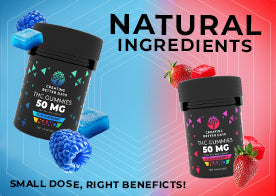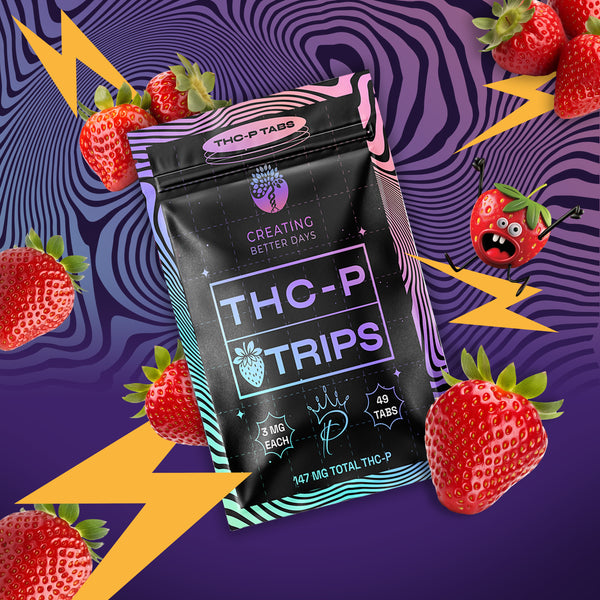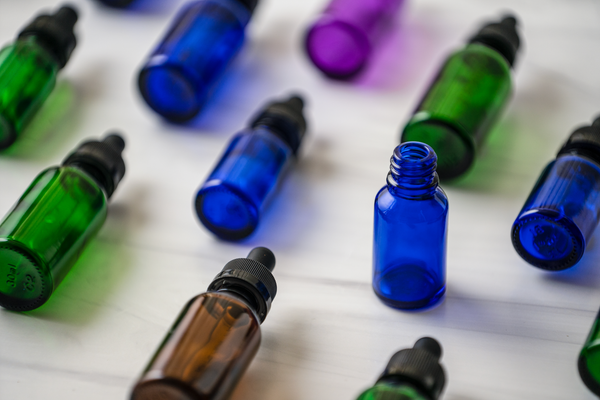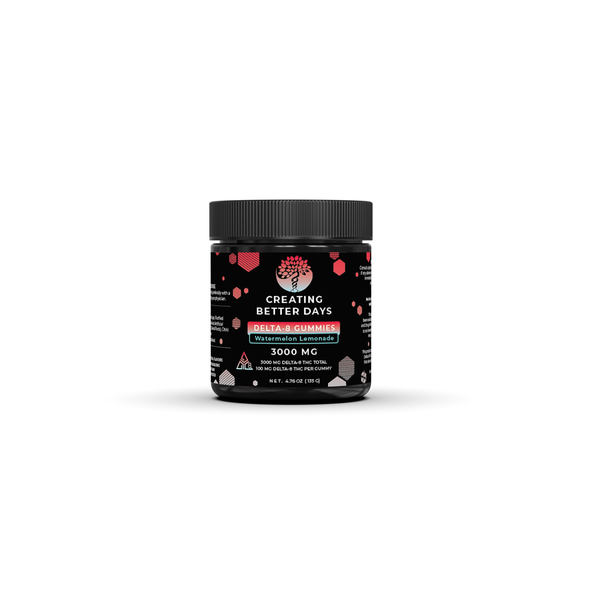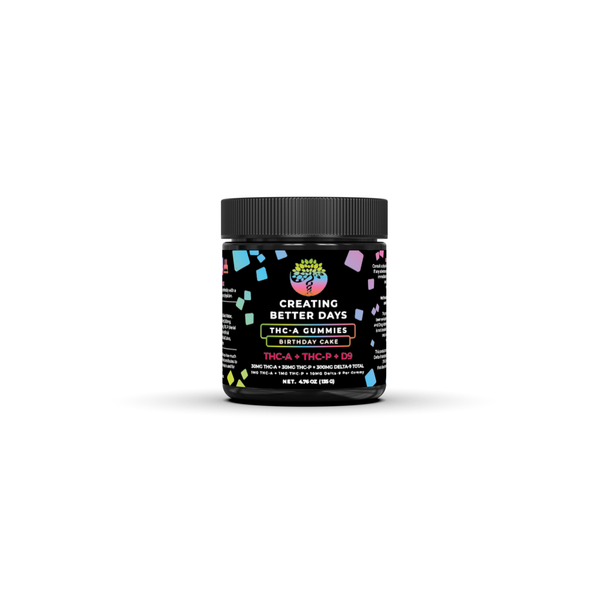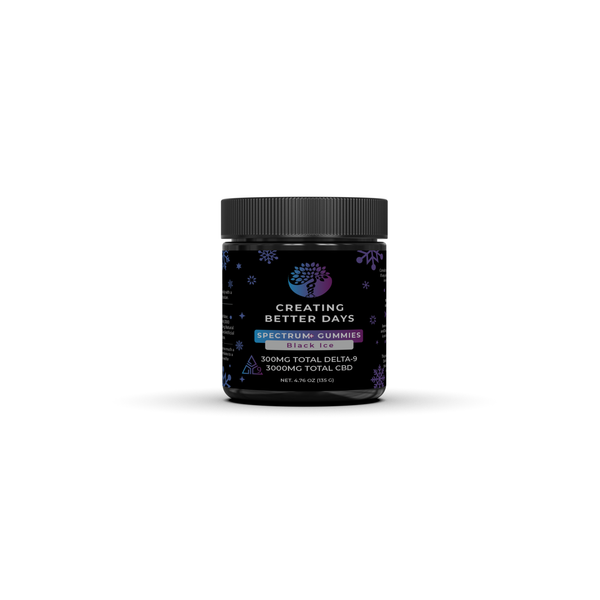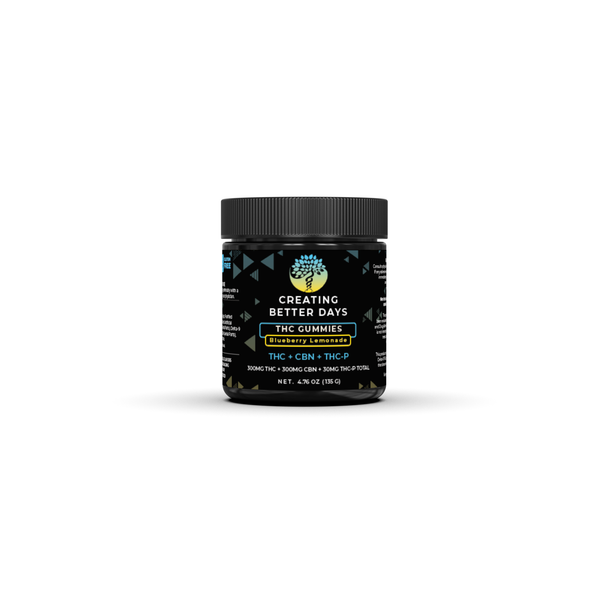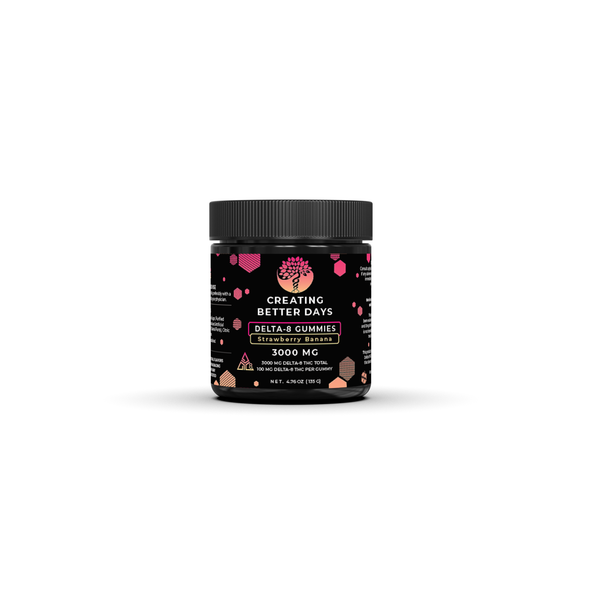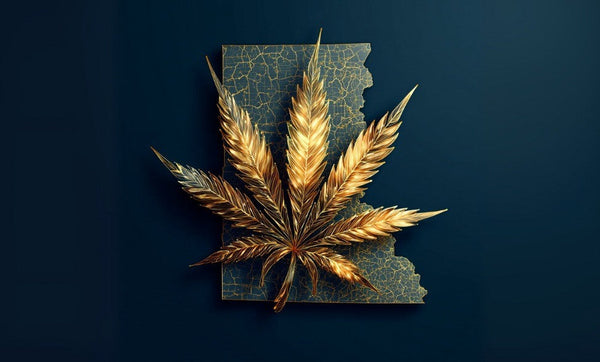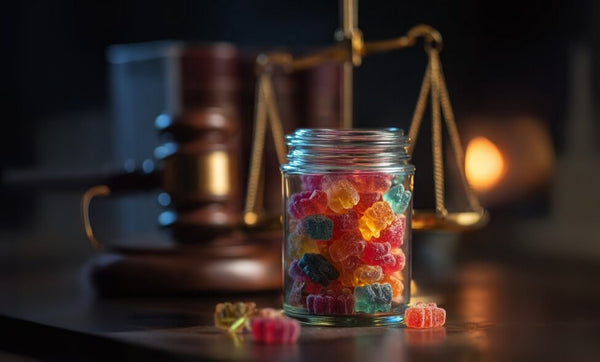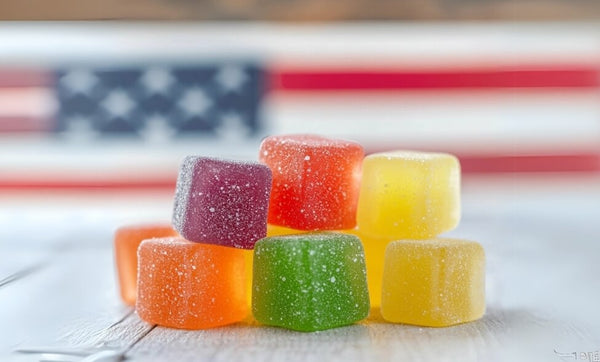
Are CBD Gummies Legal in Texas?
Are CBD gummies legal in Texas? This question has sparked plenty of chatter among Texans curious about hemp-derived products and the state's evolving cannabis laws. Maybe you've seen these colorful, chewy gummies popping up online or at local shops and wondered if you can safely add them to your wellness routine or if you might be risking trouble with the law. It's a fair question.
Texas cannabis laws can feel like a complicated puzzle, especially when it comes to cannabidiol (CBD) and its cousin tetrahydrocannabinol (THC). But peel back the layers, and you'll find some clear answers that will help you navigate the market confidently.
Let's take a look at the gummies of Texas CBD laws. You'll get the straight scoop on federal and state regulations, what you should look for when buying, and how the law might evolve in the near future. Plus, we'll offer practical advice to make your CBD gummy shopping experience smooth and safe.
So, settle in — it's time to get the facts and put your mind at ease.
Table of contents
Key Takeaways
Before diving into the details, here's a quick snapshot of what you need to know about CBD gummies and Texas law:
Yes, CBD gummies are legal in Texas as long as they meet specific requirements set by federal and state law.
Cannabis products must be derived from hemp, which contains less than 0.3% THC.
The 2018 Farm Bill legalized hemp federally, paving the way for states like Texas to regulate CBD products.
Texas passed House Bill 1325, a law that aligns state law with federal guidelines and outlines specific rules.
The Texas Department of Agriculture (TDA) oversees hemp product testing and certification to protect consumers.
Be sure to buy CBD gummies that have been tested by third parties and that have clear labeling.
Products with THC above 0.3% — often called THC gummies — are illegal in Texas, except under limited medical use cases.
CBD's legal landscape is still evolving; staying up-to-date is essential.
Understanding CBD: Hemp vs. Marijuana
Before we dig into the legal side, let's talk about the basics: what is CBD, and how does it fit into the cannabis family tree?
CBD, or cannabidiol, is a naturally occurring compound in cannabis plants. CBD does not produce intoxicating effects, so it will not get you "high." This distinction is crucial in terms of legality.
Cannabis plants can generally be divided into two categories:
Hemp: Cannabis with less than 0.3% THC by dry weight.
Marijuana: Cannabis with THC levels higher than 0.3%.
Texas law—and federal law—make this distinction very clear. Products containing less than 0.3% THC are legal under certain regulations. In contrast, marijuana and products made from marijuana remain tightly controlled in Texas.
When you buy CBD gummies, you want to ensure they come from hemp, not marijuana. Why? Marijuana-derived gummies with higher THC content are illegal for recreational use in Texas and can lead to serious penalties.
Simply put: Are CBD gummies legal in Texas? Yes, if they're hemp-based and contain 0.3% THC or less.
The 2018 Farm Bill and Federal Law
The 2018 Farm Bill, officially known as the Agriculture Improvement Act of 2018, legalized CBD. In accordance with this federal law, hemp and hemp-derived products are legal anywhere in the United States if they contain less than 0.3% THC.
This is why it is so important:
Hemp is no longer listed as a controlled substance under the Controlled Substances Act.
It allowed farmers to grow hemp under-regulated programs.
It permitted the production, sale, and transport of hemp-derived CBD products nationwide.
CBD products meeting these criteria are now federally legal, including gummies. However, the Farm Bill also put in place some guardrails:
Hemp must be grown under a state or tribal agricultural program approved by the USDA.
Products must be tested for THC limits.
While the Farm Bill cleared many legal hurdles, it didn't mean all CBD products are automatically legal everywhere. Each state could add its own rules and enforcement practices.
In Texas, lawmakers took this federal baseline and built a state framework around it.
Texas State Law: The Texas House Bill 1325
According to House Bill 1325, which the Texas Legislature passed in June 2019, hemp has been legalized in the state as of June 2019.
This bill:
Defined as hemp containing less than 0.3% THC (federal standard).
Authorized the Texas Department of Agriculture to create a hemp program overseeing growers and processors.
Allowed the sale and purchase of hemp-derived products, including CBD gummies, under specified conditions.
Set labeling and testing requirements to protect consumers and ensure products are safe and compliant.
Under HB 1325, the state requires that hemp products be properly tested for THC content and other contaminants.
This bill gave Texans access to hemp-derived CBD while keeping marijuana and high-THC products under state control.
So, in Texas, the legal CBD gummy looks like this:
Derived from hemp.
It contains less than 0.3% THC.
Tested and labeled in compliance with TDA rules.
If you're shopping for gummies, make sure they check all these boxes.
Texas Department of Agriculture's role (TDA)
Hemp is regulated by the Texas Department of Agriculture's program.
Their responsibilities include:
Licensing hemp growers and processors.
Overseeing testing procedures.
Enforcing labeling and packaging standards.
Monitoring compliance to prevent illegal or unsafe products from reaching consumers.
Third-party lab testing is required by TDA for CBD gummies in order to verify THC content and screen for contaminants such as pesticides, heavy metals, and residual solvents.
This means a gummy legally sold in Texas should have:
An independent Certificate of Analysis (COA).
THC levels confirmed below 0.3%.
Clear ingredient and CBD content labels.
If a product doesn't have this, it might not be legal or safe. As a buyer, asking for these documents or looking for lab reports online helps you stay protected.
Legal Requirements for CBD Gummies in Texas
To be crystal clear, here's what makes CBD gummies legal in Texas:
Hemp-derived CBD: Gummies must come from hemp plants, not marijuana.
THC content: Must be below 0.3% THC on a dry weight basis.
Testing: The THC level must be verified by an independent third-party lab and screened for contaminants.
Labeling: Accurate ingredient lists, CBD content, and clear product information must be present.
No medical claims: Gummies cannot be claimed to prevent, treat, or cure diseases.
Regulations are in place to protect you and to ensure that products comply with the law.
If you buy gummies that exceed THC limits or lack proper testing, you risk legal trouble or buying an unsafe product. Think of these rules as traffic laws - they keep everyone safe on the road.
The Importance of Third-Party Testing
Why is third-party testing so important? CBD products are not all created equal.
The CBD market is still young and sometimes underregulated, leading to shady products.
Some gummies may:
Contains more THC than advertised, which can cause legal issues.
Have contaminants like pesticides or heavy metals.
Have inaccurate CBD dosages.
Third-party testing by independent labs is the gold standard to verify what's inside the product.
Certificates of Analysis (COAs) are provided by reputable brands that break down:
THC and CBD content.
Presence (or absence) of pesticides, mold, and heavy metals.
Potency and purity.
This shows that the company stands behind its product. Buying gummies without this info is like ordering food without knowing if it's fresh — risky. So, always ask or look online for these test results before buying.
Retailers and Consumers: What Texans Need to Know
If you're a retailer in Texas, compliance means:
Sourcing hemp from licensed growers.
Testing products through approved labs.
Providing accurate labels.
Avoiding unverified health claims.
For consumers, the best way to stay safe is:
Buy from reputable retailers and brands.
Ask for lab reports or COAs.
Read labels carefully.
Avoid products promising miracle cures.
Begin with small doses and see how your body reacts.
Remember, the CBD industry can sometimes feel like the Wild West. Vigilance helps you avoid scams or illegal products.
Potential Legal Issues and Challenges
Even with clear laws, the road isn't always smooth.
Here are some challenges Texans may face:
Mislabeled products: Some gummies might claim low THC but actually exceed limits.
Confusion with marijuana: Enforcement officers may not always distinguish hemp CBD from illegal marijuana products quickly.
Evolving regulations: Laws and enforcement priorities can shift, creating uncertainty.
Federal agency stances: Agencies like the FDA still scrutinize CBD products, especially regarding health claims and marketing.
Online purchases: Products shipped from out of state may or may not comply with Texas laws.
Because of this, having receipts and lab reports and knowing your rights can save you trouble.
The Future of CBD Legislation in Texas
Texas lawmakers have been watching CBD's popularity grow and may refine regulations further.
Possible changes include:
Stricter testing requirements.
Clearer marketing and labeling standards.
Expanded access or legalization of other cannabis products.
More protections for consumers.
The landscape is still settling.
Keeping up with news and trusted sources will help you stay ahead.
How To Buy CBD Gummies?
When buying CBD gummies in Texas, follow these tips:
Verify hemp source and THC content. Look for "hemp-derived" on the label and THC below 0.3%.
Request third-party lab tests. Legit brands are transparent with COAs.
Buy from trusted sellers. It is often the case that established retailers and brands have better quality control.
Avoid outrageous claims. Products promising cures are probably not legit.
Check expiration dates. Fresh gummies are safer and more effective.
Start with small doses. Check your body's reaction before increasing.
Ask questions. Do not hesitate to contact the seller's customer service.
If you want an easy starting point, Creating Better Days offers CBD gummies and products that meet Texas standards and come with full lab testing. Their commitment to transparency helps you shop with confidence.
Are THC Gummies Legal in Texas?
Short answer: No.
The use of THC gummies containing more than 0.3% THC or derived from marijuana is illegal for recreational purposes in Texas. Possession or sale of these products can lead to fines, arrests, or worse. The state of Texas allows medical use of low-THC cannabis in rare cases but not for general consumers.
So if you see gummies advertised as "high THC" or "marijuana-infused," steer clear unless you have legal authorization.
Final Takeaway
So, are CBD gummies legal in Texas? Yes, as long as they follow state and federal laws.
Therefore, they must:
It is derived from hemp plants.
Contain less than 0.3% THC.
Be tested by independent labs.
Have accurate labels and no unproven health claims.
As a consumer, your best protection is to buy smart. Ask questions, look for lab reports, and stick to trusted brands and retailers. Texas law supports hemp-derived CBD gummies, but the details make all the difference. The market can feel confusing, but with knowledge, you can enjoy CBD gummies legally and safely.
Frequently Asked Questions
Are THC Gummies Legal in Texas?
No. Gummies containing more than 0.3% THC or made from marijuana are illegal except in limited medical contexts.
Are CBD Gummies Legal in Texas?
Yes. CBD gummies derived from hemp with less than 0.3% THC are legal in Texas.
Yes. Many retailers legally sell compliant CBD gummies in Texas.
Are CBD Gummies Safe in Texas?
Look for third-party lab test results and buy from reputable sellers.
What Happens If My CBD Gummies Have More Than 0.3% THC?
They are considered marijuana products and are illegal in Texas, which can result in legal consequences.
Have more questions about "Are CBD gummies legal in Texas?" Contact our support team via email at info@creatingbetterdays.com or call (1800) 215-0223 to get clarification for all your questions. Check out our blog section for answers to your questions.

